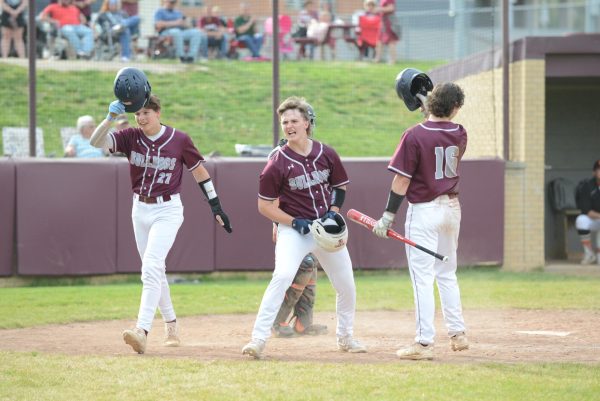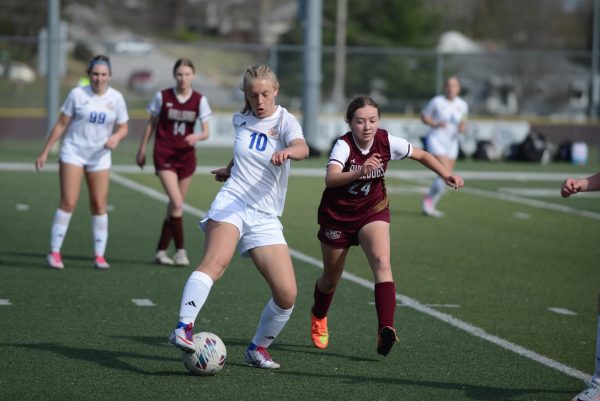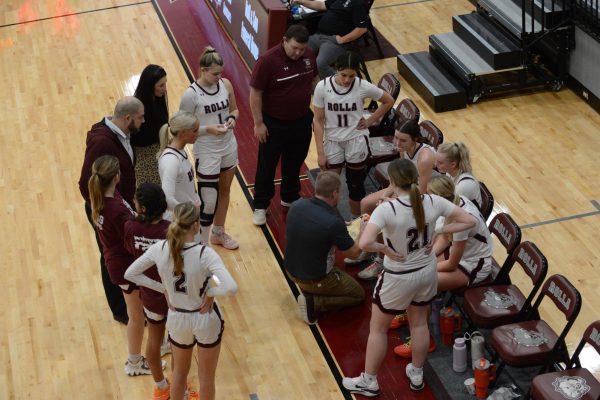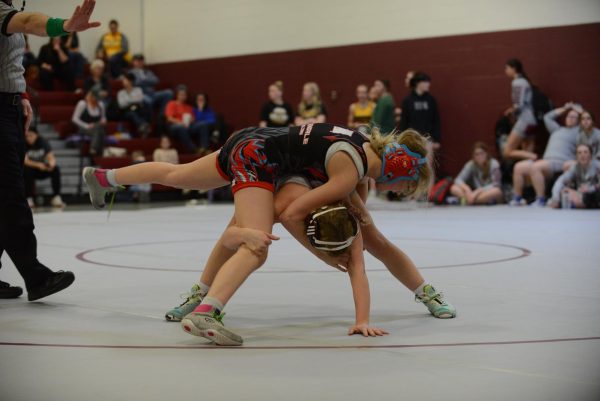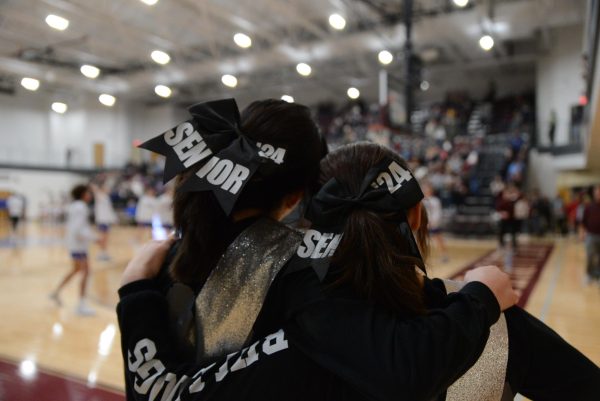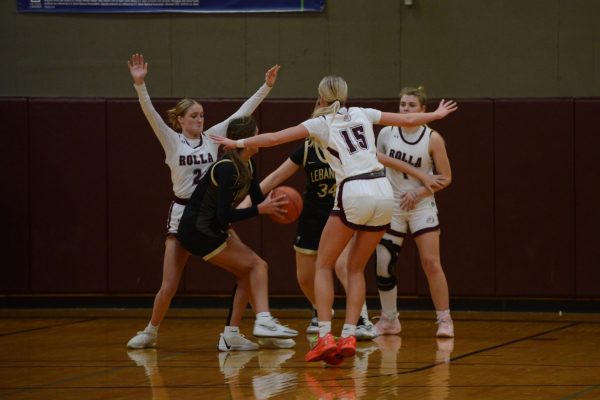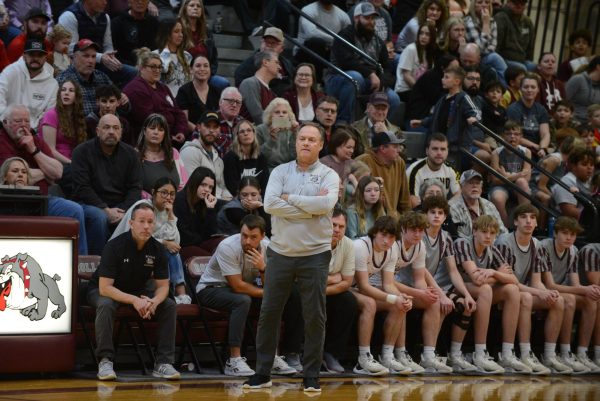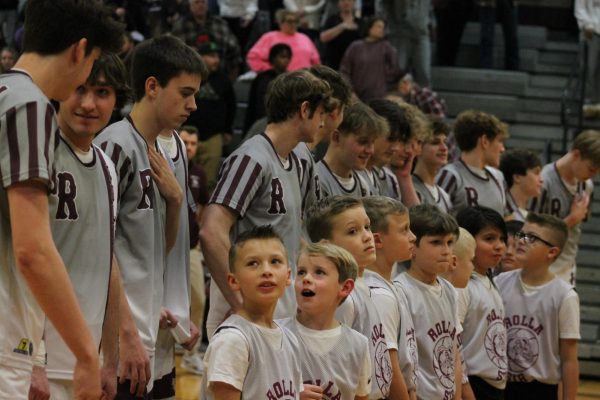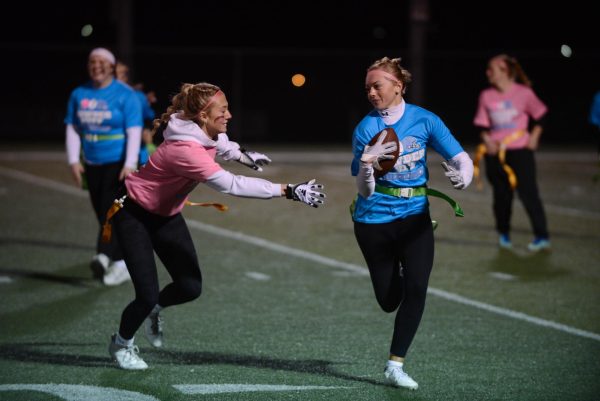Wrestling reps. demystify the sport
Everyday after school, over a hundred students flock to the wrestling room. These athletes practice their craft in preparation for their future matches. They are perfecting the art of one of the oldest Olympic sports: wrestling.
One of these athletes is junior Taylor Heimbaugh, who is a state qualifier.
“I think to be a wrestler, you have to be mentally tough,” said Heimbaugh. “I mean, you really just have to love it, and I think that other sports, people do them and they just do them because their friends do them, but to be a wrestler you have to really love the sport because it’s hard.”
There are a multitude of ways wrestling differs from other sports.
“I mean, there’s not a team [in wrestling], but it’s not so different individually,” said Heimbaugh. “I think that [in] wrestling, our coaches definitely work more [on mental preparation]. And in softball, it’s more technique. There’s a lot of technique in wrestling, too, but I would say, you have to be mentally prepared to go out there before you can hit any of your moves.”
Wrestling offers a great opportunity for everyone of all walks of life.
“We really look for those kids that are way under 100 pounds where they might not excel in basketball, or volleyball, those sports you know you need a little height to have an advantage,” said Coach Hauck, the Rolla High School wrestling coach. “Whereas in wrestling height doesn’t really take part. At the same time, if you want to be a football player… there’s an optimal size that they would like you to be, so that 100 pound kid is ideal for wrestling.”
Over time, wrestlers hone their technique.
“So freshman year when you first start out, everything’s so different because it’s not like a lot of other sports,” said Heimbaugh. “When you’re taking shots or setting up to take a shot, it’s just so different and new and you feel like you’re doing things wrong. It’s a little frustrating at first. At the beginning, you’ll have to really sit and think ‘What do I do from this position?’ Especially this year, my junior year, I’ve really just started to go out there and do things without thinking, and I think it’s because we do so much of it, like repetition. So I think it gets easier the more you do it, like everything else.”
Wrestling offers advantages that other sports don’t.
“You only wrestle your weight class, so you don’t wrestle anybody bigger than you,” said Coach Hauck. “An advantage for a smaller person is there’s not many 100 pound high school kids anymore nowadays, right? If you go back to the 80s, it was significantly different. And the weight classes were different. So our average size with that of the weight class has changed accordingly. So if you’re under 100 pounds, you have a great chance, because instead of 16 teams in a tournament, there might only be eight kids in your weight class. Whereas if you’re 145 pound kid, that’s kind of the average, you’re going to have a full bracket. So you know your opportunity is still the same, but the advantage is a little bit different.”
This year, another opportunity to practice has been offered.
“We actually have this new thing this year where we’re doing a group called Betas,” explained Heimbaugh. “It’s a morning group, so I actually have two practices a day. The Betas are in the morning, and it’s more for one-on-one help. It’s people who decided at the beginning of the season that they wanted to try to go as far as they can in the season, so they picked to do two practices, and it’s more conditioning. We do weights. We have bags in there and dummies that we throw, and that’s more of our conditioning. It also helps us keep our weight down. I mean, if you practice hard, it’s not hard to keep your weight in check. But obviously, we do have weight classes that you make. I think we have 10 in the morning group, all the other wrestlers just wrestle after school.”
There are many misconceptions about weight in wrestling.
“I think a lot of people don’t wrestle because all they’re thinking about is, ‘I don’t want to cut weight,’ and that’s not really how it is. You pick a weight class that you can manage your weight and keep it there,” said Heimbaugh. “It’s not really cutting, it’s just managing.”
However, the need to cut weight is not the only misconception.
“Another thing is, a lot of people are kind of scared to go out for wrestling, just because you think you’re fighting other people, which is…what you’re doing,” Heimbaugh explained. “But, there’s a technique to it.”
Heimbaugh competed at state level on February 17. Competing at state is a monumental achievement.
“I [was] pretty excited. It was definitely like my goal at the beginning of the season. We all wrote goals on the wall in the wrestling room, and so every day we go in there we look at our goal. My goal was to qualify for state and so it kind of felt like a dream.”
Molly Kell, Brock Horten-Owens, Kayden Kinder, Brayden Squires, Hunter Hoffman, Andre Ridenhour, and Hayden Fane also qualified for the State Tournament. Ridenhour placed third in the 160 weight class earning All-State honors, and Fane brought home a state championship by placing first in the 182 weight class.

Hello! I’m Kyra and this is my first year writing in ECHO. I’m a senior. I enjoy reading, and watching Netflix. My favorite food is baklava- go eat...




